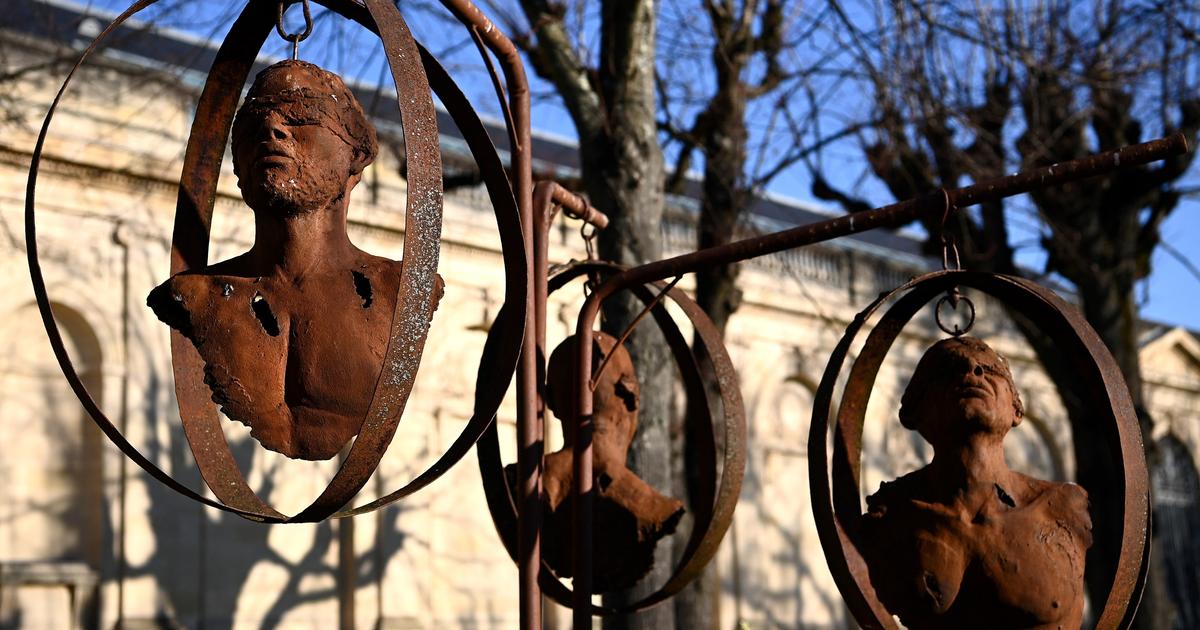Only known portrait of Harriet Jacobs.
CM Gilbert (Gilbert Studios, Washington), restored by Adam Cuerden.
There is the margin.
More heeled hangs its edge.
And something beyond, leaning into the abyss that engulfs everything invisible and silenced, this tremendous testimony shines like a gem: the voice of a 19th-century American slave who emerges from an atrocious world of whippings and sexual abuse with a cry of rebellion.
An allegation of pain, denunciation and insurrection written in the first person.
A
j'accuse
against the executioners and their henchmen.
Also against the hypocrisy of the indifferent and accomplices, Mitläufer of all times.
A voice from below —100 years before the microhistory of Edward P. Thompson or Carlo Ginzburg— capable of composing with her hands and her soul this literary monument to Freedom.
A combat book, profoundly human, from whose pages it is impossible to get out the same way you enter.
Fortunately.
There are children who at the age of six find out that the Three Wise Men do not come from the East.
At the age of six, Harriet Jacobs (1813-1897) learned that she was a slave.
Her mother had just died and her father would soon die, and she saw herself in her master's house in North Carolina, in the southern United States.
Not the romantic land where the sun warms the flowering vine.
Another south.
The hell of the south
Where four million people lived as slaves.
Where that girl would be forced to walk barefoot through the snow, her feet burning;
to see her brother chained through the streets;
to witness the mass rental of slaves every New Year;
to feel the fear in her bones when she heard the footsteps of the master who abused her, the terrifying Doctor Flint.
Forced to listen to stories like that of that slave eaten by rats and buried like a dog,
A catalog of cruelties populates these
Episodes in the Life of a Slave
, a book that Harriet Jacobs published in 1861 (under a pseudonym).
She did so after a life in which she overcame, fighting relentlessly, all adversity.
The systematic mistreatment of her master, the imprisonment of her two sons, the ban on marrying the man she loved, the seven years she spent hidden in the attic of a cabin—three feet tall, nine feet long, and seven feet tall. wide—and his subsequent flight north in search of freedom.
Freedom.
That is the engine of her life and of this story, a paradigm of the fusion of two very American literary genres: the sentimental novel and the slave narrative.
Many passages sound perfect.
That motivated a suspicion for more than a century: that the book was fictitious or that it had been written by another person.
An investigation dispelled doubts in 1981
This autobiography with the elements of a novel beats with an agile rhythm and diaphanous prose;
pure poetry of tearing.
A long example: “We entered the cell without making the slightest noise.
(...) A rattle of chains was heard.
The moon had just risen and shed an uncertain light that filtered through the bars of the window.
We knelt down and wrapped Benjamin's cold hands in our own.
No one said anything."
Three short examples: “We only die once”;
"Freedom is more valuable than life";
"Although I was one of the weakest creatures created by God, I decided that no one would ever conquer me."
That's how perfect many passages sound.
That motivated a suspicion for more than a century: that the book was fictitious or that it had been written by another person.
However, an arduous investigation in 1981 dispelled the doubts:
everything was true and everything had been written by Harriet Jacobs overcoming three walls: racism, slavery and sexism.
The margin of the margin of the margin.
In this book there are no tears;
there is a lump in the throat and an unknown: where does so much resistance come from.
Whence so much pride and so much will, stronger than the whip and iron as the chains.
The author warns from the prologue: "What I want is to open the eyes of the women of the north so that they become aware of the situation that two million women are going through in the south, still victims of captivity."
It is the denunciation of an intellectual to a rotten system.
Specifically, to that Fugitive Slave Law that forced any State to help in the capture of the slaves that had fled.
Complicit hypocrisy.
While New York society listened to the impassioned voice of soprano Jenny Lind at Metropolitan Hall, the imprisoned voices of millions of black slaves were silenced and persecuted.
The naturalness with which democracy and barbarism coexisted is shocking.
While New York society listened to the impassioned voice of soprano Jenny Lind at Metropolitan Hall, the imprisoned voices of millions of enslaved blacks were silenced and persecuted.
Starving slaves working day and night on the plantations.
The screams of mothers as a slave trader ripped their children from their arms.
Girls raped in a daily horror.
The pools of blood at the foot of the whipping post.
The mental jail that is fear.
And, among all this, the freedom that Harriet pursues on the rainy night that she flees from her.
A pristine, romantic, utopian freedom.
An idea that collapses upon reaching the Free States and discovering
apartheid
,
de jure
and
de facto
.
An echo of slavery, an indelible fence throughout the country.
Freedom or death: it is the dilemma of Jacobs, one of the first African-American authors.
Freedom or death: and in the background, the power of the word.
From the public word, published.
The loaded gun of the future.
Or, at least, of denouncing the present.
In slave-owning America, in absolutist Iran, on the margins of our abysses.
Find it in your bookstore
You can follow BABELIA on
and
, or sign up here to receive
our weekly newsletter
.
Subscribe to continue reading
Read without limits
Keep reading
I'm already a subscriber

/cloudfront-eu-central-1.images.arcpublishing.com/prisa/W2DOWIZGQFENZMHUTANSWVS4GA.jpg)



/cloudfront-eu-central-1.images.arcpublishing.com/prisa/HLLTVOIAI4PFHDPFVB25WKI3QM.jpg)

